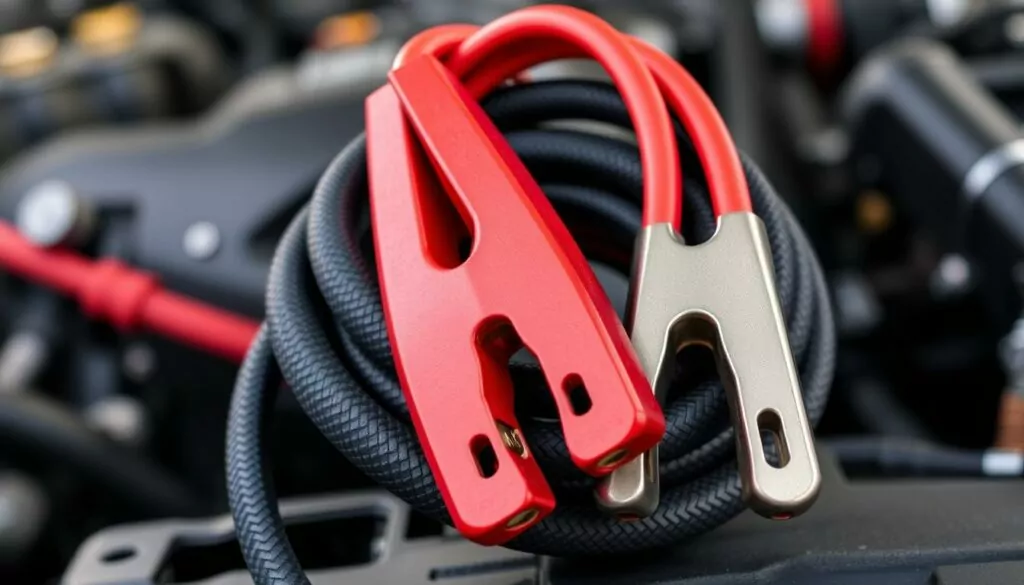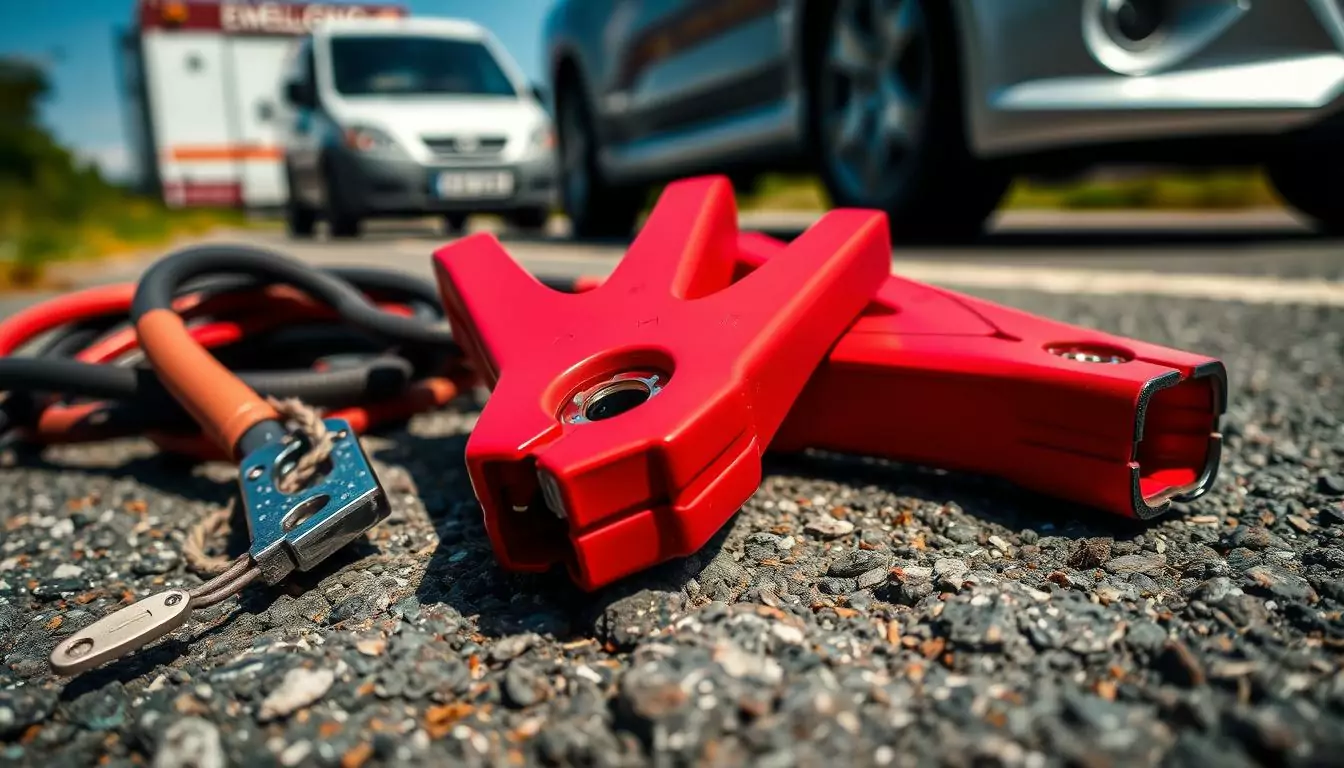My car wouldn’t start on a freezing winter night in an empty lot. Panic hit me when I realized I had no jumper cables. This taught me to always be ready. Now, I keep heavy-duty jumper cables in my trunk for emergencies.
Automotive jumper cables are vital when your battery dies. Good cables can quickly get you back on the road. Poor ones might leave you stranded for hours. That’s why I’m eager to share about reliable, heavy-duty jumper cables.
This guide will help you pick the best heavy-duty jumper cables. We’ll look at what makes these cables great for safe, effective jump starts. This info will help you choose the right emergency gear, no matter your driving experience.
Key Takeaways
- Heavy duty jumper cables are essential for emergency car starts
- Quality matters when choosing automotive jumper cables
- Proper gauge and length are crucial for effective jump starts
- Durable clamps ensure a secure connection to the battery
- Always prioritize safety when using car battery cables
Understanding Jumper Cables Heavy Duty Specifications
Heavy-duty battery jump leads are crucial for any driver. These tools can save you in emergency situations. Let’s explore the key specs for choosing the right engine jump starter cables.
Gauge Ratings and Cable Thickness Explained
The gauge rating of truck booster cables relates to their thickness. Lower gauge numbers mean thicker cables, which handle more current. For heavy-duty use, 4-gauge or 2-gauge cables are best.
These provide excellent conductivity for most vehicles, including large trucks. Thicker cables ensure better power transfer during jump-starts.
Length Requirements for Different Vehicle Types
Cable length is another important factor to consider. For standard cars, 16-foot cables usually work well. Larger vehicles or tricky parking situations may need 20-foot or 25-foot cables.
Longer heavy-duty battery jump leads offer more flexibility. They allow easier positioning of vehicles for jump-starting in various situations.

Amperage Capacity and Performance Factors
The amperage capacity of engine jump starter cables affects their performance. Higher ratings mean faster and more efficient jump starts. For most vehicles, 400-600 amp cables work well.
Larger engines or diesel trucks might need cables rated for 800 amps or more. Higher amperage ensures quick starts for bigger vehicles.
| Vehicle Type | Recommended Gauge | Ideal Length | Amperage Rating |
|---|---|---|---|
| Compact Cars | 6-gauge | 16 feet | 400 amps |
| SUVs/Pickup Trucks | 4-gauge | 20 feet | 600 amps |
| Large Trucks/Diesel Engines | 2-gauge | 25 feet | 800+ amps |
How to Choose the Best Heavy-Duty Battery Jump Leads
Selecting the right jumper cables can be challenging. This guide will help you pick top-notch heavy-duty battery jump leads. We’ll explore types, features, and prices to assist your decision-making process.
Professional vs Consumer-Grade Cable Comparison
Commercial-grade jump cables outperform regular consumer options. These high-amperage wires handle more power, suiting larger vehicles or frequent use. They’re pricier but worth it for those needing reliable performance.
Weather Resistance and Durability Factors
Durable jumper cables are essential for long-lasting use. Seek options with thick insulation and weather-resistant coatings. These features shield cables from extreme conditions and wear.
Quality cables ensure readiness when you need them most. They withstand temperature changes, moisture, and frequent handling.
Price Range and Value Considerations
Heavy-duty jumper cable prices vary widely. Avoid choosing based on cost alone; quality matters more. Investing in well-made, commercial-grade cables can save money long-term.
Superior cables last longer and perform better. They provide peace of mind during roadside emergencies.
